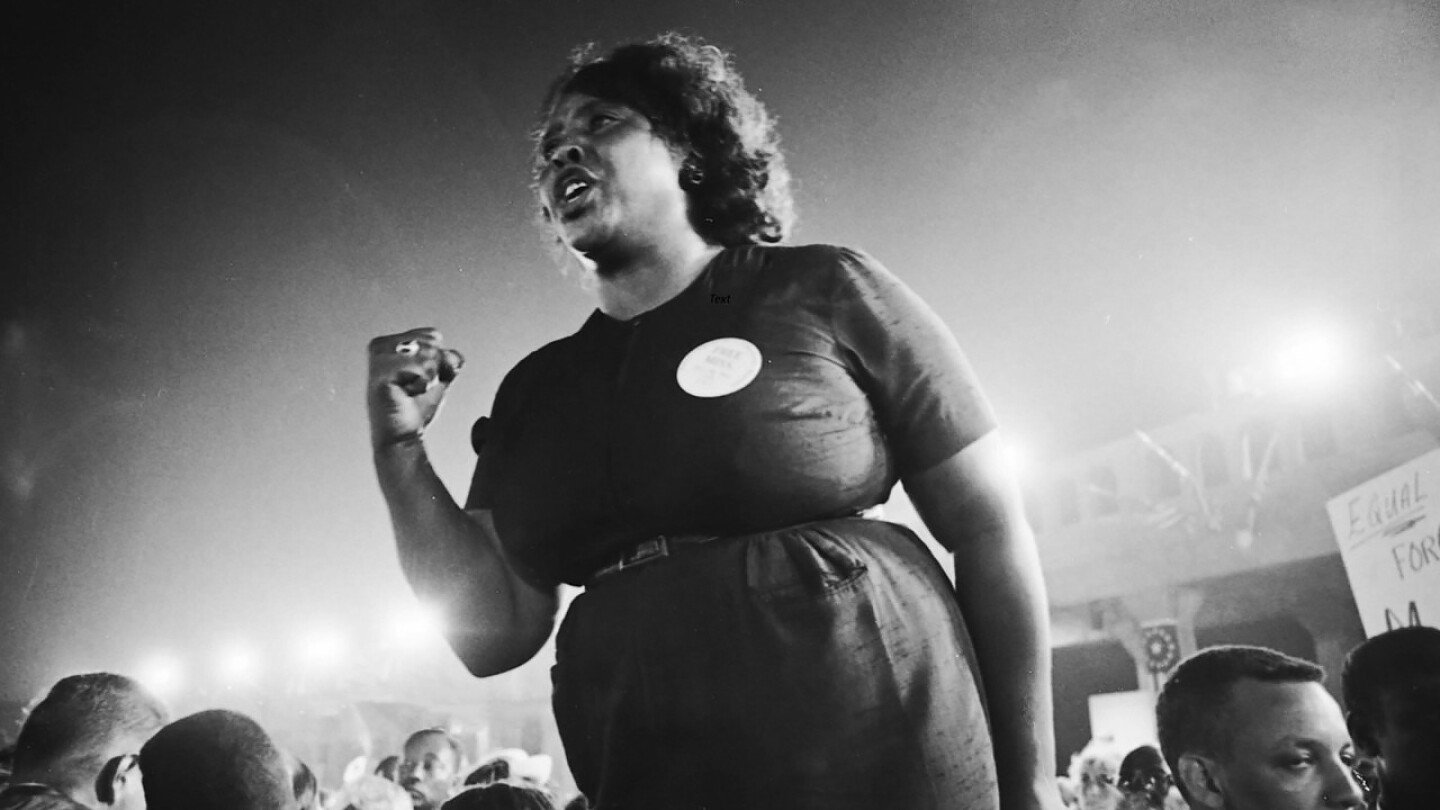
Buy Clothing
Buy Clothing
FANNIE LOU HAMER
Born in 1917, Fannie Lou Hamer, a sharecropper's daughter in the Mississippi Delta, faced adversity early on, including forced sterilization in 1961. Activism ignited in 1962 when she encountered resistance to voter registration, leading to her eviction. Recognized by local organizers, she became a leader in the Mississippi Civil Rights movement and played a key role in the Mississippi Freedom Democratic Party (MFDP). Despite health challenges, Hamer remained a pivotal figure in the civil rights movement until her death in 1977, addressing issues beyond voting rights, including economic security and desegregation.
SIZING GUIDE
For a gender-neutral fit, opt for your regular size in unisex apparel. For a more fitted look, size down, and for those who prefer an oversized feel, size up.
LEARN MORE ABOUT FANNIE
“Fannie Lou Hamer’s childhood experience of picking cotton in Mississippi is close to my heart because it was also the experience of my late Granny, Christine Willie, my late Uncle, John Moore, and my Great Uncle Boosie Moore, who is still living. Her story is my family’s story.”
Erin’s late maternal grandmother, Christine Willie, lovingly referred to as Granny. She escaped Mississippi and moved up to Chicago in early 1950s.
Erin's vibrant Auntie Jackie stands beside her late husband, Erin’s Uncle, John Moore on their wedding day. Uncle John escaped Mississippi to Flint, MI for some time and eventually moved to Chicago in 1971.
Erin’s great Uncle Jimmy Moore, affectionately known as Uncle Boosie, is the oldest living relative on Erin’s maternal side. He escaped Mississippi and hitched a ride up to Chicago in 1958.




